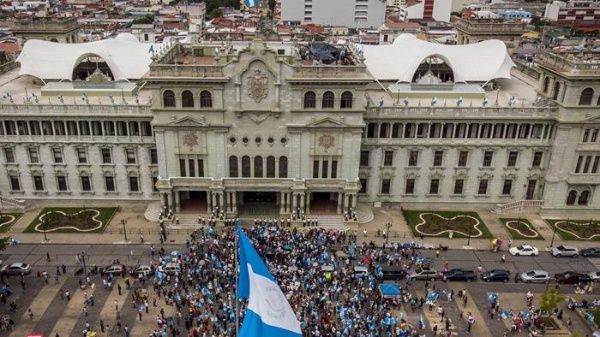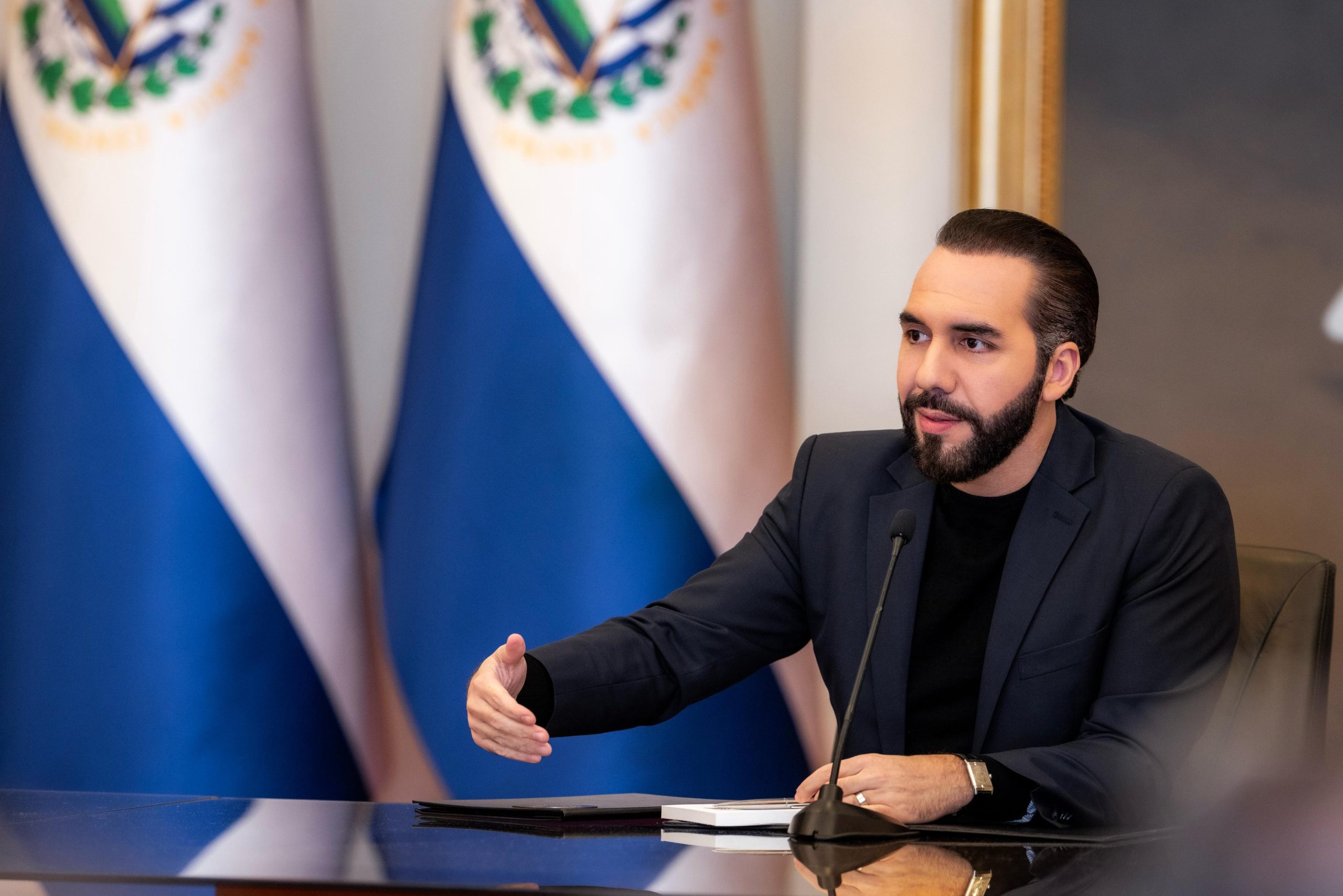Central America
Justice moves forward in cases against Guatemala’s president-elect

December 13 |
Both the Attorney General’s Office and a Guatemalan court judge advanced, by different paths, in separate investigations against the president-elect of that Central American country, Bernardo Arévalo.
The Attorney General’s Office delivered this Monday to the Supreme Electoral Tribunal (TSE) a report of the investigation on alleged anomalies for which it considers “null” the elections won by Arevalo last summer.
This followed Friday’s announcement by the Attorney General’s Office when it said it had detected irregularities in the vote count of the first round of June elections, although the president of the TSE, Blanca Alfaro, qualified that same day that the results of the elections “are unalterable” and that Arevalo must assume power on January 14.
But, the day before, “the Special Prosecutor’s Office against Impunity sent to the Magistrate President of the Supreme Electoral Tribunal, the criminal investigation developed by the Prosecutor’s Office, so that after the analysis, they can adopt the decision they consider convenient”, it was reported.
According to the Prosecutor’s Office, there were a series of anomalies in the final minutes of the closing of the scrutiny in the elections of president, vice-president, deputies, corporations and deputies to the Central American Parliament.
Meanwhile, a judge sentenced this Monday an electoral official to two and a half years in prison for the alleged case of false signatures used for the creation of the Semilla Movement, Arévalo de León’s party.
According to several experts and Arévalo de León himself, this case of the alleged false signatures is part of the attempts of the Public Prosecutor’s Office (Fiscalía) to prevent the president-elect from taking office on January 14.
The sentence, ordered by criminal judge Fredy Orellana, was against an unidentified official of the Supreme Electoral Tribunal, informed a statement from the Attorney General’s Office: the “sentenced person accepted his responsibility in the commission of the crimes”, and the sentence given is two years and six months in prison, said the Public Prosecutor’s Office, although in Guatemala prison sentences may be commutable if they are less than five years.
Arévalo de León, who enjoys immunity both for his current position as congressman and for the presidential election he won, is accused in the same case being handled by Judge Orellana.
Last September 1, Arévalo de León warned that the attorney general and head of the Public Ministry, Consuelo Porras Argueta, is carrying out a “coup d’état” against him in order to prevent his investiture in January.
Central America
Guatemala Police Arrest Prison Guard Caught in the Act of Extortion

Guatemala’s National Civil Police (PNC) arrested a suspected extortionist in the act during an operation carried out in the department of Quiché, authorities reported.
According to the police report, the arrest took place in Zone 1 of Santa Cruz del Quiché after officers responded to a citizen complaint. Agents from Precinct 71 identified the suspect as Encarnación “N”, 41, who was serving as a guard in the Guatemalan Penitentiary System.
The suspect was caught while attempting to collect a package simulating an extortion payment totaling 25,000 quetzales. Police intervened at the precise moment the money was being handed over, allowing authorities to document the crime in flagrante delicto.
Following the operation, the detainee was placed at the disposal of the competent courts to face criminal proceedings.
The PNC emphasized that such operations aim to dismantle criminal structures involved in extortion, regardless of whether those implicated are linked to state institutions, and urged the public to continue reporting these crimes through confidential channels.
Central America
Honduras swears in conservative president Asfura after disputed election

Conservative politician Nasry Asfura assumed the presidency of Honduras on Tuesday with an agenda closely aligned with the United States, a shift that could strain the country’s relationship with China as he seeks to confront the economic and security challenges facing the poorest and most violent nation in Central America.
Asfura’s rise to power, backed by U.S. President Donald Trump, marks the end of four years of left-wing rule and secures Trump another regional ally amid the advance of conservative governments in Chile, Bolivia, Peru, and Argentina.
The 67-year-old former mayor and construction businessman was sworn in during an austere ceremony at the National Congress, following a tightly contested election marred by opposition allegations of fraud and Trump’s threat to cut U.S. aid if his preferred candidate did not prevail.
Grateful for Washington’s support, Asfura—who is of Palestinian descent—traveled to the United States to meet with Secretary of State Marco Rubio, before visiting Israeli Prime Minister Benjamin Netanyahu.
“We need to strengthen relations with our most important trading partner,” Asfura said after being declared the winner of the November 30 election by a narrow margin, following a tense vote count that lasted just over three weeks.
Central America
Bukele leads public trust rankings as UCA survey highlights gains in security

Results from the UCA Survey, conducted by the José Simeón Cañas Central American University (UCA), were presented on Tuesday, offering an assessment of the performance of the Government of El Salvador during 2025 and measuring public perception on key issues such as security and the economy.
According to the survey, President Nayib Bukele received an average score of 8.39 for his performance in 2025. In the category measuring levels of trust in national institutions and social actors, Bukele led the ranking with 77% public confidence, surpassing the Central Government (69.6%), the Armed Forces (69.1%), the National Civil Police (PNC), and the Catholic Church (58.4%), among others.
The survey also highlights an upward trend in the president’s evaluation. While Bukele scored 8.15 for his performance in 2024, the most recent assessment of his sixth year in office showed an increase to 8.39.
Meanwhile, the Government of El Salvador as a whole was rated 8.33 for its performance during 2025.
Respondents identified public security as the area showing the greatest progress in the country, with 62.7% recognizing improvements in this sector, according to the UCA survey released on Tuesday.
-

 Central America5 days ago
Central America5 days agoGuatemala’s president rules out negotiations with inmates after prison riots
-

 Central America2 days ago
Central America2 days agoGuatemala seizes over a ton of cocaine hidden in flour at Pacific port
-

 International4 days ago
International4 days agoTrump-Era Defense Plan Prioritizes Border Security and Scales Back Global Commitments
-

 Internacionales5 days ago
Internacionales5 days agoMajor winter storm threatens “catastrophic” ice and snow across much of the U.S.
-

 International4 days ago
International4 days agoBogotá and Quito Seek Dialogue After Tariffs and Power Cut Escalate Tensions
-

 International3 days ago
International3 days agoDelcy Rodríguez seeks political agreements after Maduro’s ouster
-

 International5 days ago
International5 days agoGuatemala considers sending high-risk gang members to military prisons
-

 International2 days ago
International2 days agoHistoric snowstorm paralyzes Toronto after 60 centimeters of snow
-

 International2 days ago
International2 days agoSpain’s irregular migrant population rises to 840,000, study finds
-

 International3 days ago
International3 days agoFederal immigration agents kill man in Minneapolis, sparking protests and outrage
-

 International5 days ago
International5 days agoRights group says over 5,000 killed in Iran protests, mostly civilians
-

 Central America24 hours ago
Central America24 hours agoGuatemala Police Arrest Prison Guard Caught in the Act of Extortion
-

 Sin categoría24 hours ago
Sin categoría24 hours agoEight Killed in Series of Armed Attacks in Ecuador’s Manabí Province
-

 International24 hours ago
International24 hours agoWinter Storm Fern Leaves 30 Dead and Over One Million Without Power Across the U.S.
-

 Central America24 hours ago
Central America24 hours agoHonduras swears in conservative president Asfura after disputed election
-

 International24 hours ago
International24 hours agoDoomsday clock moves to 85 seconds before midnight amid rising global risks
-

 International2 days ago
International2 days agoRights group says nearly 6,000 killed in Iran protest crackdown
-

 Central America1 day ago
Central America1 day agoBukele leads public trust rankings as UCA survey highlights gains in security
-

 International24 hours ago
International24 hours agoSpain approves plan to regularize up to 500,000 migrants in Historic Shift
-

 International2 days ago
International2 days agoVenezuela frees at least 80 political prisoners, NGO says
-

 Sin categoría24 hours ago
Sin categoría24 hours agoEl Salvador Launches Fourth Year of Ocean Mission to Protect Marine Ecosystems
-

 International2 days ago
International2 days agoEU launches new probe into X over AI-generated fake nude images
-

 International2 days ago
International2 days agoSevere winter storm grips U.S., leaves multiple dead as extreme cold persists
-

 International2 days ago
International2 days agoFrance debates ban on social media for children under 15




































































































